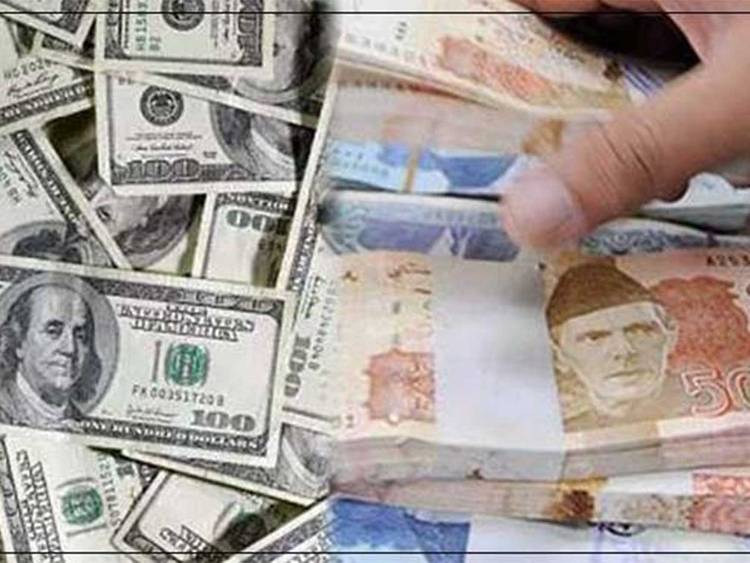
A prominent economist Kaiser Bengali has warned that the rupee could touch 250 per dollar within a year and added that the government had “very little say” in shaping of the economy, media reported.
“We currently have a finance minister and governor of State Bank who have come from abroad. Since 1993, we have had these ‘fly-in, fly-out’ consultants," Bengali remarked.
Speaking at a meeting Karachi, he said the PTI government had minimal say in shaping Pakistan’s economy on the lines of the country's foreign policy.
"Our political governments don’t have a say in foreign policy, and now they have very little say in the economy. The economy has been taken over by the IMF (International Monetary Fund) and the World Bank," he noted.
Bengali described the China Pakistan Economic Corridor (CPEC) as a product of the new "East India Company".
To a question on CPEC, he said, “It is not a game changer, it is game over… at first, we have to fight with one East India Company, ‘World Bank’, which is already ruining the country, then we have to worry about another East India Company in making.”
Separately, Bengali expressed his reservations over the recent deal with the IMF (International Monetary Fund) and accused it of pursuing an agenda.
"The IMF has an agenda to privatise the assets of the country, which will lead to massive unemployment," said the expert.
He described the IMF package as a temporary relief. “The IMF package means nothing more than some time to fill the balance-of-payments gap. It’s just breathing space.”
He observed that despite the latest IMF loan, which is insufficient to meet the country’s actual requirements, Pakistan had to go to the commercial market to borrow short-term and expensive loans, which he said would further deepen the dollar deficit. “This [dollar deficit] will further push Pakistan to look to the IMF,” he said.
Bengali linked the proposed IMF package to talks between Islamabad and the Financial Action Task Force (FATF). The FATF has already placed Pakistan on its grey list for not taking enough measures to curb terror financing and money laundering. Now, the FATF meeting is continuing in China with Turkey, the United States, United Kingdom, China, India and others participating.
“I believe the IMF has brought Pakistan to this stage deliberately. Now both the IMF and FATF will force Pakistan to carry out multiple drastic structural economic reforms, mainly related to terrorism financing,” he contended.
“We currently have a finance minister and governor of State Bank who have come from abroad. Since 1993, we have had these ‘fly-in, fly-out’ consultants," Bengali remarked.
Speaking at a meeting Karachi, he said the PTI government had minimal say in shaping Pakistan’s economy on the lines of the country's foreign policy.
"Our political governments don’t have a say in foreign policy, and now they have very little say in the economy. The economy has been taken over by the IMF (International Monetary Fund) and the World Bank," he noted.
Bengali described the China Pakistan Economic Corridor (CPEC) as a product of the new "East India Company".
To a question on CPEC, he said, “It is not a game changer, it is game over… at first, we have to fight with one East India Company, ‘World Bank’, which is already ruining the country, then we have to worry about another East India Company in making.”
Separately, Bengali expressed his reservations over the recent deal with the IMF (International Monetary Fund) and accused it of pursuing an agenda.
"The IMF has an agenda to privatise the assets of the country, which will lead to massive unemployment," said the expert.
He described the IMF package as a temporary relief. “The IMF package means nothing more than some time to fill the balance-of-payments gap. It’s just breathing space.”
He observed that despite the latest IMF loan, which is insufficient to meet the country’s actual requirements, Pakistan had to go to the commercial market to borrow short-term and expensive loans, which he said would further deepen the dollar deficit. “This [dollar deficit] will further push Pakistan to look to the IMF,” he said.
Bengali linked the proposed IMF package to talks between Islamabad and the Financial Action Task Force (FATF). The FATF has already placed Pakistan on its grey list for not taking enough measures to curb terror financing and money laundering. Now, the FATF meeting is continuing in China with Turkey, the United States, United Kingdom, China, India and others participating.
“I believe the IMF has brought Pakistan to this stage deliberately. Now both the IMF and FATF will force Pakistan to carry out multiple drastic structural economic reforms, mainly related to terrorism financing,” he contended.
